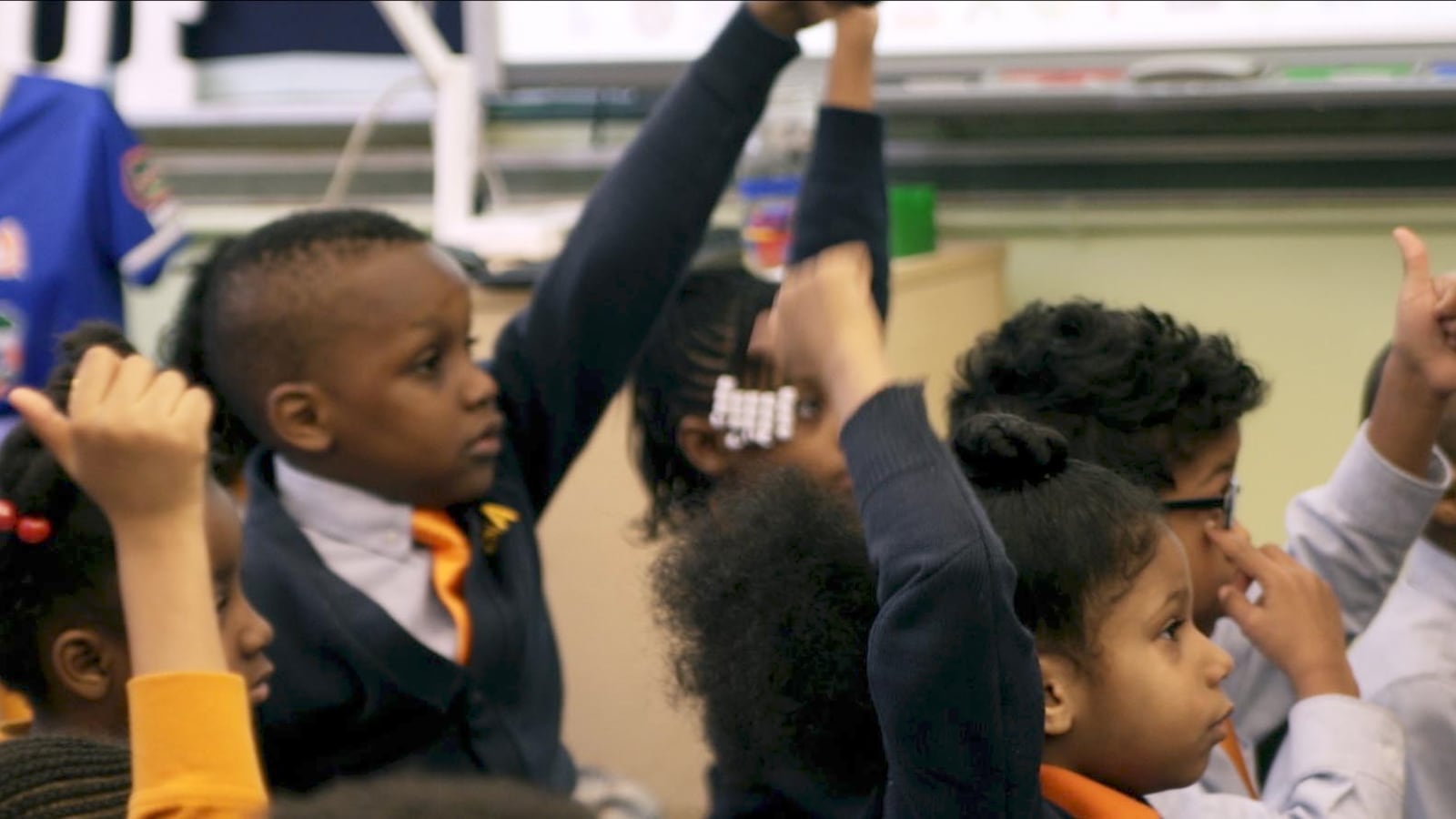With a film crew rolling, Hebh Jamal boarded the subway before dawn to start her commute to Beacon High School in Manhattan’s Theater District — a ride that takes an hour and 20 minutes from her family’s apartment in the Bronx.
“It would have been nice if there had been options around me,” she tells the camera. “I didn’t feel like there were.”
With that scene, New York City’s school-integration movement is introduced to a national audience in “Teach Us All,” a documentary that traces segregation from the time the Little Rock Nine integrated an Arkansas high school to the present day.
The film, distributed by the collective founded by Ava DuVernay — the award-winning filmmaker behind the Civil Rights-era drama “Selma” and the documentary “13th” — includes a look at city schools that, for some advocates, is posing a dilemma.
While some advocates see the film as a platform to build support for integrated schools, others are uncomfortable with storylines that, in their eyes, take aim at teachers and elevate charter schools — which some critics say can exacerbate segregation. The film was released on Netflix in September.
“I think it undermines the work that we’ve done and the work we care about,” said Matt Gonzales, who works on school integration efforts for the nonprofit New York Appleseed.
Gonzales, a consultant for the film, has essentially disowned it, dropping his support for a planned national effort to organize students after the film’s release. Among other issues, the film briefly features Eva Moskowitz, the controversial leader of Success Academy charter schools, who is fiercely opposed by many supporters of the city’s traditional public schools.
The filmmaker, Sonia Lowman, did not return a call for comment.
In the documentary, Lowman travels to Little Rock, Los Angeles and New York City to chronicle the history of segregation and focus on students who are leading efforts to dismantle it. Lowman highlights the work of IntegrateNYC, a student-led movement that was born in the Bronx and has expanded citywide.
The film has its share of supporters, who see it as a teachable moment for a cause they have long advocated.
Mike Hilton, who works on education policy for the Poverty & Race Research Action Council, and the National Coalition on School Diversity, said the film serves as an important introduction to the pervasive issue of segregation. In that sense, he said, it could be a “Waiting for Superman” moment, referring to the documentary that fueled public consciousness about school choice.
“The general understanding of the condition of our schools and the segregated nature of them in the public, I think, is really poor,” he said. “So I think this film helps highlight that, and I hope people ask the question: ‘Oh my God. Do we have a problem with this?’”
But critics said the film features a cast of unlikely advocates for the cause.
In cities like New York, charter schools are often criticized for adding to segregation by enrolling almost entirely black and Hispanic students. (Their supporters note that they were created to provide new options for low-income families, many of them black and Hispanic — and that some charters are intentionally diverse.) Nonetheless, students in the signature orange uniforms of Success Academy appear throughout the film. Moskowitz is featured briefly to extol the importance of school choice.
“I would put my trust in parents before anything else,” says Moskowitz, who has argued elsewhere that charter schools can be a tool for integration.
The film also dives into the case of Vergara v. California, which argued, ultimately unsuccessfully, that teacher tenure laws disproportionately place ineffective teachers in schools that serve mainly black and Hispanic students.
“It was blaming the unions in California for students not getting an equal education,” said Gonzales, who was a teacher in Los Angeles at the time of the case. “The film seems to kind of prop that up as the problem. It tells the really terrible story of segregated schools, and then it goes on this tirade.”
After the film premiered last spring at the South by Southwest education conference in Austin, Gonzales said he and other advocates shared their concerns with the filmmaker, who made some changes — such as ending with student interviews, instead of Moskowitz.
“We want everyone to see it, but you should watch it with a very critical eye,” he said.
The film is meant to extend nationally the student movement to integrate schools. Sarah Camiscoli, a Bronx teacher who helped start IntegrateNYC, worked with the film company to write a comprehensive curriculum to go along with the documentary.
While she also found some of the themes jarring, she said the youth response has been markedly different from that of adults. She has fielded dozens of requests from students looking to get involved, Camiscoli said.
“On the student level, young people are saying, ‘Hey, I experience separate and unequal education. Can you help me think of a solution?’” she said. “It’s been an amazing opportunity to expand our work.”
Update: This story has been updated to include a photo from the documentary. The original photo was attributed to the documentary but was actually part of promotion for the film.

